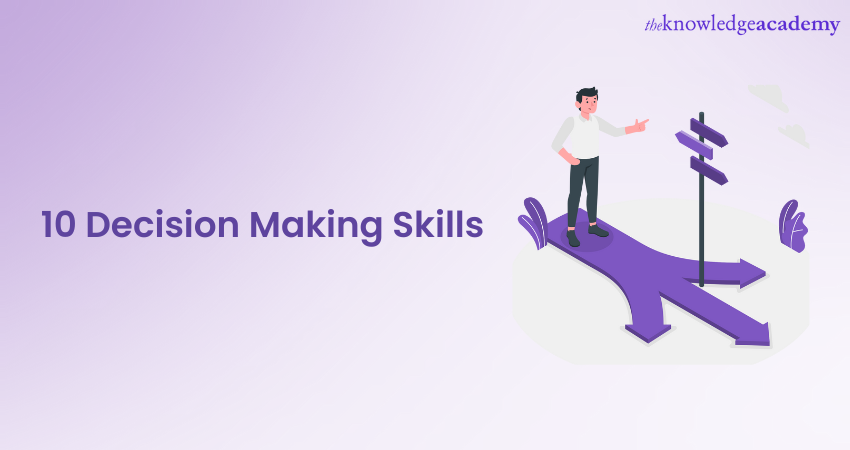Within our fast-paced world, this ability to make effective decisions is more crucial than ever. Be it in personal life, at work, or during critical situations, our choices we make can significantly influence our outcomes. Yet, the sheer volume of information and the constant demands on our attention can lead to decision overload, making it increasingly difficult to think clearly and confidently. This article discusses simple yet impactful strategies to enhance your decision-making skills, helping you navigate the complexities of choice with greater ease and confidence.
From understanding the psychology behind our decisions to learning how to analyze options in a effectively, mastering the art of smart decision-making is an essential skill. By incorporating proven techniques and frameworks into your daily routine, you can simplify your decision-making process and improve both the quality and speed of your choices. We will explore into various aspects of decision-making, including the balance between intuition and logic, the importance of emotional intelligence, and how to overcome the fear of making the wrong choice. With these tools and insights, you can prepare yourself to make better decisions, even under stress.
Proven Strategies for Intelligent Decision-Making
One practical technique for improving the decision-making process is to create a clear decision-making model. By outlining Click here! that matter most for each decision, individuals can fairly evaluate options based on their aims and beliefs. This system not only improves the process but also reduces emotional biases that might cloud judgment. For challenging decisions, tools such as decision trees or pros and cons lists can provide a visual representation of choices, helping to clarify the likely outcomes.
Another effective strategy is to utilize the benefit of intuition while balancing it with analytical thinking. Often, intuition stems from past experiences and knowledge, allowing for rapid judgments in indefinite situations. However, integrating logic and data analysis ensures that critical information is not overlooked. This harmony between gut feeling and informed reasoning can lead to more confident choices, especially under pressure.
Finally, integrating mindfulness into the decision-making process can significantly improve clarity and focus. By giving a moment to pause, reflect, and center oneself, individuals can lessen stress and anxiety associated with making difficult decisions. This habit allows for greater mental clarity and a more considerate approach, ultimately leading to more informed and more intentional choices.
Managing Pressure and Avoiding Burnout
In the current rapid environment, making decisions often is accompanied by high levels of pressure. This can result in exhaustion, causing individuals to make choices that are less informed or rushed decisions. To manage this stress, it's essential to employ strategies that foster mental clarity. Simple methods such as breathing deeply, taking a brief step back, or engaging in brief mindfulness exercises can revitalize your mental energy and provide a fresh perspective.

Preventing decision fatigue is essential for keeping optimal performance in both individual and professional contexts. One proven strategy is to reduce the number of decisions you make in a day. By streamlining your routine and setting specific times for significant decisions, you reserve your mental resources for what truly matters. Creating a concise decision-making framework can also aid simplify the process and lessen cognitive overload, allowing you to focus on the key elements at hand.
Moreover, it's important to notice the signs of fatigue and pressure in your decision process process. When you start to feel overwhelmed, pause and assess your emotional state. Recognizing stress can help you use coping strategies, ensuring that you do not allow fear or anxiety to cloud your judgment. By valuing mental health and establishing a balanced approach, you can navigate decision-making with more confidence and clarity, ultimately resulting in better outcomes.
The Equilibrium of Gut Feeling and Reasoning
In the process of deciding, finding the optimal equilibrium between instinct and logic can enhance our skill to make successful judgments. Intuition often comes from our unconscious mind, drawing on previous encounters and sensations that may produce quick, gut-level decisions. While this intuitive approach can be helpful in familiar situations, it can also cause prejudices and impulsive choices when faced with unfamiliar challenges. Thus, realizing when to rely on instinct is vital for making sound choices.
On the flip side, logical reasoning involves a structured process of evaluation, weighing the advantages and disadvantages of various options. This approach promotes thorough assessment and can uncover insights that intuition might neglect. However, an excessive dependence on reasoning can sometimes result in stagnation by scrutiny, where individuals become burdened with options and data, ultimately impeding the decision-making process. Achieving the ideal equilibrium between these both approaches enables us to capitalize on the strengths of each while reducing their respective weaknesses.
To nurture this equilibrium, individuals should practice combining both gut insights and logical analysis in their decision process. This might involve taking time to consider intuitive prompts while also gathering relevant data and viewpoints. Engaging in mindfulness practices can help enhance awareness of one’s instincts, while analytical tools can provide a structure for evaluating complex situations. By fostering a productive relationship between gut feeling and logic, decision-makers can enhance their effectiveness, leading to more confident and comprehensive decisions.
